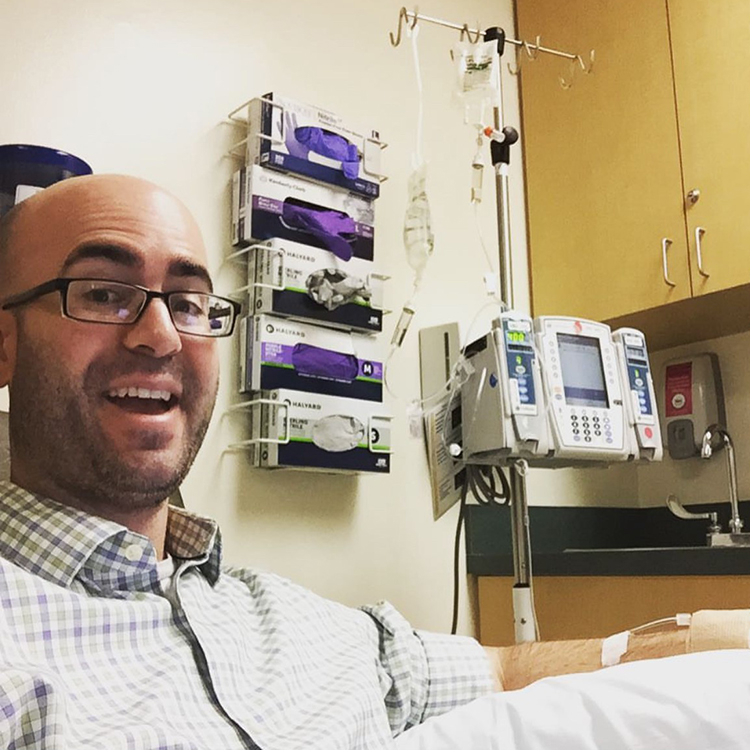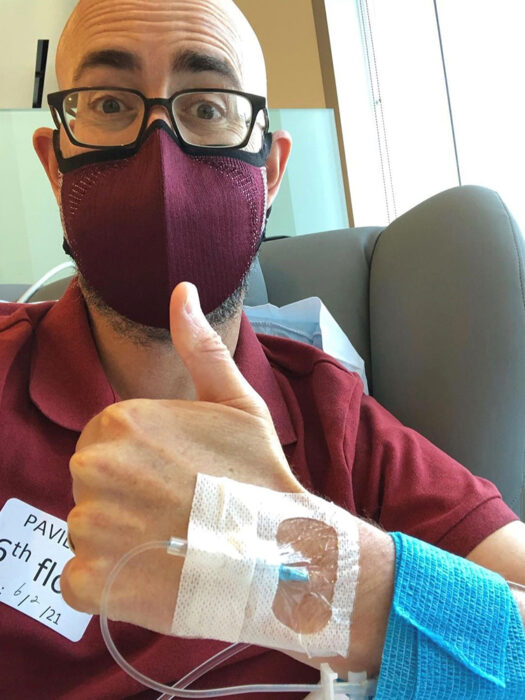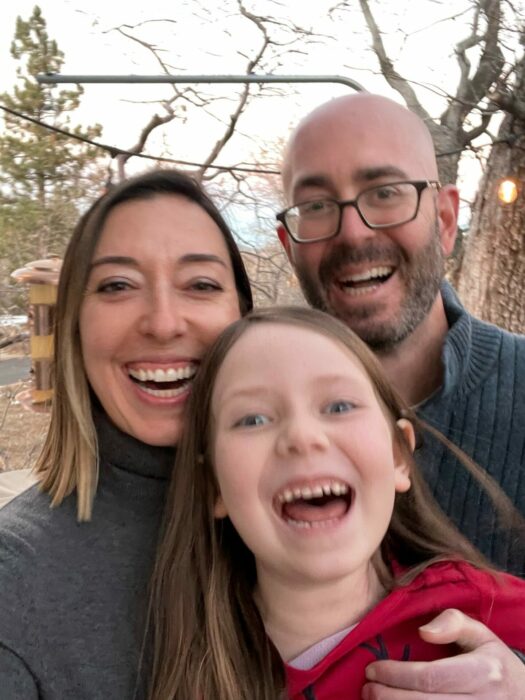Research brings HOPE
How advancements in research have provided new hope in Bryan Bishop’s battle
After over 14 years of uncertainty and waiting, the Bishop family has renewed hope in Bryan’s battle – because of cancer research.
“We’ve been so incredibly lucky with our timing through this incredible, twisting and turning journey, because things [treatment options] keep popping up when we need them,” Bryan said. “Here we are 14 years later; things were looking quite bleak, but we are exhausting different options, and along comes this new medication.”


Bryan was diagnosed with a low-grade glioma in April 2009, exactly two months before his wedding. While counting down the days until their wedding, Bryan and his now wife, Christie, had noticed some symptoms: numbness in his tongue and other numbness during the mornings when he woke up for work. After a few doctor’s appointments, Bryan was misdiagnosed with multiple sclerosis.
After further testing, Bryan’s diagnosis was corrected, but there weren’t many treatment options available. The location of Bryan’s tumor in the brain stem made it impossible to biopsy, so there were working with limited information. To add insult to injury, Bryan and Christie had both just been laid off from their respective entertainment and advertising jobs as part of the 2009 recession.
“We went from thinking we were going to hang out, have some happy hours and plan our wedding; instead, we went into this insanity of the world of cancer treatments as almost newlyweds,” Christie said.

Bryan’s journey facing cancer has meant a lot of uncertainty because of the inability to gather the needed information. He tried new approaches, but it was a hard and frustrating time both for him and for Christie. But, throughout the ordeal, the couple remained positive and hopeful.
The pair have continued to live their lives. Bryan continued his career in radio/podcast on the Adam Carolla Show, where he’s known as ‘Bald Bryan’. During his battle, Bryan also penned “Shrinkage”, a NY Times Bestselling autobiography about his cancer journey. Today, he is a co-host of “The Bryan & Gina Show”, the official podcast of Los Angeles Magazine, as well as a long-time co-host of “The Film Vault.”
The evidence of cancer research has been consistent throughout their battle as well. One drug that they tried early on was presented as a ‘last-resort’ option but turned out to be so much more than that. The medication had just been introduced to the market months before Bryan was diagnosed in 2009. Bryan and Christie credit that drug with saving his life.
Years later, Bryan and Christie were able to meet the scientist whose work resulted in the development of Avastin. It was truly an incredible experience.
“We had the opportunity to meet this man, who through the microscope discovered the gene or whatever it was, that led to Avastin,” Christie said. “To stand in the same room with the person who found the drug that literally saved his life is unbelievable.”

Recently, Bryan’s doctors made him aware of yet another new drug hitting the market. This drug focuses on his specific type of tumor. But, to qualify Bryan for this new treatment, they needed to learn more about his tumor to see if it had a certain genetic mutation that would make the drug effective. To do this, they needed a biopsy.
Research in the past consistently leads to new developments each day. One of these developments, in addition to the tumor slightly shifting in position, made it safe for doctors to perform a biopsy on Bryan’s tumor. The risks were now minimal, especially in comparison to the potential gains of this new medication.
Over 14 years from his original diagnosis, the Bishops now know more about what they are facing than they ever have before. Information provides options, and a renewed hope for options to come.
Bryan and Christie are now looking forward to starting this new medication when it enters the market. They, along with their 7-year-old daughter, optimistically believe that it could really change the course of Bryan’s battle. They are hopeful for the future.
Cancer research has changed the game, again.




